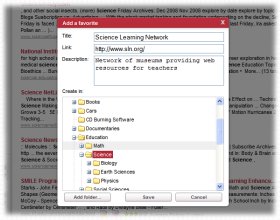|
Web
Education
Viewing 1-10 of 10 total results
[0811.3877] Interpretations of Quantum Mechanics: a ...
Abstract: This brief survey analyzes the epistemological implications about the role of observer in the interpretations of Quantum Mechanics. As we know, the goal of most interpretations of quantum mechanics is to avoid the apparent intrusion of the observer into the measurement process.
Works by Michele Caponigro - PhilPapers
Michele Caponigro & Ravi Prakash - 2009 - NeuroQuantology Journal, June 2009 7 (2):198-203. The underlying physical reality is a central notion in the interpretations of quantum mechanics. The a priori physical reality notion affects the corresponding interpretation.
Quantum Mechanics: Philosophy and Interpretations ...
Michele Caponigro. Abstract. A brief overview on the philosophy and the interpretations of quantum mechanics. Keywords. Philosophy of Quantum Mechanics, Entanglement, Non-Locality. Full Text: PDF. References. Anisimov MA, Caponigro M, Mancini S, Man'ko VI. Tomograms and the quest for single particle nonlocality. InJournal of Physics: Conference ...
(PDF) Quantum Formalism: Brief Epistemological ...
1 2 HELEN LYNN AND MICHELE CAPONIGRO 1. Platonism. We are going to analyze the quantum superposition1, while in the next section, starting from Platonic2 view (where the math world is the ontic element), we will argue about the possible consequences of the analysis on : (i)the notion of informa- tion and computability of the system (ii)the math ...
[quant-ph/0612036] "Physical quantity" and " Physical ...
Authors: David Vernette, Michele Caponigro (Submitted on 5 Dec 2006) Abstract: We reconsider briefly the relation between "physical quantity" and "physical reality in the light of recent interpretations of Quantum Mechanics. We argue, that these interpretations are conditioned from the epistemological relation between these two fundamental ...
Epistemic vs Ontic Classification of quantum entangled states?
In this brief paper, starting from recent works, we analyze from conceptual point of view this basic question: can be the nature of quantum entangled states interpreted ontologically or epistemologically? According some works, the degrees of freedom (and the tool of quantum partitions) of quantum systems permit us to establish a possible classification between factorizables and entangled states.
Michele Caponigro, Interpretations of quantum mechanics: A ...
This brief survey analyzes the epistemological implications about the role of observer in the interpretations of Quantum Mechanics. As we know, the goal of most interpretations of quantum mechanics is to avoid the apparent intrusion of the observer into the measurement process.
Ontology of Quantum Entangled States No Needs Philosophy ...
Michele Caponigro. Abstract. When we understand, usually philosophical debates disappear. In this brief paper, starting from some works, we argue that quantum entangled states could be considered as primitive. We analyze from a conceptual point of view this basic question: can the nature of quantum entangled states be interpreted ontologically ...
Michele Caponigro ISHTAR, Bergamo University
Michele Caponigro ISHTAR, Bergamo University Abstract We argue from conceptual point of view the relationship between quantum entanglement and many-worlds interpretation of quantum mechanics, the debate is still open, but we retain the objective Bayesian interpretation of quantum probability could
[PDF] Interpretations of Quantum Mechanics: a critical ...
This brief survey analyzes the epistemological implications about the role of observer in the interpretations of Quantum Mechanics. As we know, the goal of most interpretations of quantum mechanics is to avoid the apparent intrusion of the observer into the measurement process. In the same time, there are implicit and hidden assumptions about his role.
|
